An essential component to my series of articles that focus on the newly returning and new to the hobby collectors is getting them up to speed on the terminology. After a 25-year hiatus myself, I found a lot of new vocabulary and abbreviations that I knew nothing about, and I still come across terms that leave me scratching my head.
If you have any questions on these definitions or come across a word or abbreviation not in this list, head on over to the Prospects Live Discord and hit me and the other collectors up in the Baseball Card channel.
If you are looking for links to other Baseball Card Foundation articles:
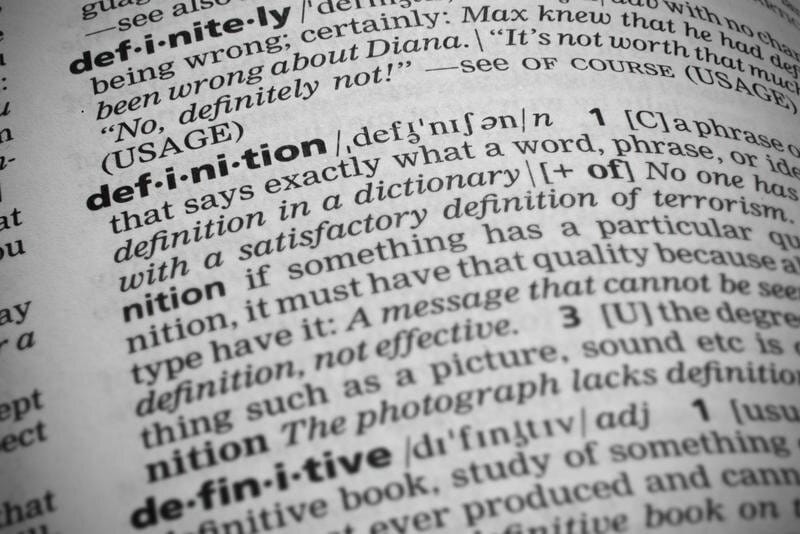
Baseball Card Dictionary
Acetate - Rather than the traditional cardboard-based stock used to make cards, Acetate is a translucent, almost plastic-like stock. Acetate-based cards tend to have less value than equivalent cardboard-based cards. Products like Topps High Tek and Clearly Authentic are made only using acetate stock, while other products will have acetate inserts like the Clear parallel for Topps Flagship base cards.
Authentication - When an authentication company like PSA or Beckett will authenticate the card itself or more often the signature on the card or other piece of memorabilia as being authentic and not a forgery/fake.
B/S/T - Buy/Sell/Trade - An acronym often used in social media threads, especially with character restrictions (Twitter) for the buying, selling, and trading of cards and memorabilia.
BCCG - Beckett Collectors Club Grading - A mass grading service provided by Beckett (www.beckett.com) that is often found in re-packaged products in retail locations. Generally not considered to be representative of a grade you would receive if submitted to BGS/BVG/PSA. For example, a BCCG 10 if resubmitted to BGS would likely get an 8, maybe a 9 if lucky.
BCW - One of the major card supplies companies in the industry, BCW originally stood for Baseball Card World. They supply card sleeves, binder pages, storage boxes, etc. www.bcwsupplies.com
Beckett Raw Card Review - Service that Beckett offers, typically at card shows, that takes a raw, ungraded card and does a very quick and unscientific review of the card and assigns it a grade. That should give the card owner a rough idea of what their card would get if submitted for the full grading process, although it is not a promise of what their card would get.
BGS - Beckett Grading Service - The main grading service provided by Beckett (www.beckett.com) for modern cards (1981 - present). For baseball card grading, it is one of the two most popular companies.
BIN - Buy It Now - one of the two main options when selling an item on eBay (the main marketplace for baseball cards), with the other being a traditional auction. Buy It Now is a set price that a purchaser will pay for an item.
Blaster Box - Blaster boxes will be found at Retail locations (although people/hobby shops will purchase them and resell them depending on their popularity) and are usually in the $20 price range. Almost never guaranteeing any hits, they will often have some sort of exclusive parallel card(s) included.
BMWT - Bubble Mailer With Tracking - the hobby standard for sending small amounts of card. Bubble wrap helps protect the cards and tracking allows buyer and seller (or trade partners) to give transparency in shipping.
BVG - Beckett Vintage Grading - The main grading service provided by Beckett (www.beckett.com) for vintage cards (pre-1981). For baseball card grading, it is one of the two most popular companies.
Car Pulls - also referred to as Parking Lot Pulls, this is when someone purchases packs/boxes, often from Retail, and can’t wait to get home before ripping them open (we’ve all been there). If someone gets a hit, they often take a picture of the hit from inside their car and post it to Social Media.
Card Doctor - A person that performs alterations on a card such as trimming, corner shaping, bleaching/chemical alteration of the card to hide print marks and other marks acquired throughout the life of the card, etc. The goal is to increase the desirability of the card without a purchaser knowing the card has been altered. This removes the originality and authenticity of a card and most of the hobby finds this unacceptable.
Card Saver - the plastic holder that was the de facto single card holder of choice through the junk wax era. More flimsy than a top loader and more difficult to use (getting the cards in and out), they have fallen out of favor in the sports card collecting world. The main value is that grading card companies often prefer card savers over top loaders and may charge you extra if you submit cards in top loaders instead of card savers.
Cello Pack - Cello is short for cellophane and is in reference to the clear plastic that will be used to package up 2 or more loose packs into a single product, often found on a hanger in Retail Locations. Cello packs will often have exclusive parallels to that configuration.
COA - Certificate Of Authenticity - certificate issued by an authenticating company to confirm that a piece of memorabilia and/or autograph is verified to be authentic.
COMC - Check Out My Cards - A card consignment company and marketplace. www.comc.com
Consignment - essentially the same idea as consignment in general. There are various businesses from small to big offering card consignment services. Collectors can send their cards to a consignor and the consignor will do all the leg work of photographing, listing, closing the sale, and sending the cards to the buyers for a percentage of the final sale price. While taking the headache out of selling your cards, there are also various concerns around some consignment services including shill bidding and card doctors and forgers hiding behind the consignors without the purchaser's knowledge. Some of the larger Consignment services in the hobby are provided by COMC, Probstein, and PWCC.
Cut/Cut Signature - A Cut Signature, or sometimes called just a Cut, is when a player’s signature is taken from another piece of memorabilia or just everyday items like a personal check. The player’s signature is “cut” out of the original material and inlaid into a card. Most often this is done with players who have passed away.
eBay 1/1 - sellers will try to enhance the SEO and eyes on their listings by using the sought after 1/1 terminology even if the card is not a true 1/1. They will refer to it as an eBay 1/1 if the card is a 1/x, like a 1/99. They will also refer to cards that are the same number on both sides of the slash, so a 25/25 will often be called an eBay 1/1. You will find that this is often a joke among collectors and memes are frequently made about this selling tactic.
Event worn - For relics/memorabilia/patches that are placed in cards, the manufacturer should designate the nature of the material. Event worn memorabilia is assured by the manufacturer that the material was worn during an event like a rookie symposium.
Fat Pack - A loose pack that is larger than the regular loose packs typically found in Retail locations. More often than not, it is just more cards in the pack than a loose pack and doesn’t provide anything exclusive, just a bit better value for your money. Sometimes called jumbo packs (not to be confused with packs that come from Jumbo boxes).
FeeBay - nickname given to eBay due to what some sellers consider high fees for the service provided.
FF/F&F - Friends and Family - One of the two basic options to pay for anything, including breaks and cards, using Paypal. Friends and Family puts the burden of responsibility on the person buying/sending funds. The Paypal fees will be paid for by the buyer and the buyer does not have Paypal payer protection by default (refunds typically not available).
Flagship - refers to the core product for a manufacturer. In baseball, the primary example is the Flagship product for Topps is Series 1/2/Update.
Flat rate - Usually in reference to the Flat Rate USPS boxes that a large amount of cards will be shipped in when a plain white envelope (PWE) or a bubble mailer (BMWT) are not large enough to hold the amount of cards being sent.
Flipper - During bull markets in the hobby, flippers become more prevalent. They purchase hot products at MSRP either via Retail or Hobby channels, and then immediately “flip” them for a profit. Many people in the hobby with the primary goal of collecting as opposed to making money tend to have a negative view of flippers.
FS/FT/NFS/NFT - For Sale/For Trade/Not For Sale/Not For Trade - Often found on social media and other websites where people are posting cards, typically ones just pulled/received, and whether are for sale and/or trade. If not, it is often just a show-off type post and posters use NFS/NFT to stave off a flood of messages.
Game worn - For relics/memorabilia/patches that are placed in cards, the manufacturer should designate the nature of the material. Game worn memorabilia is assured by the manufacturer that the material was worn during an actual game. This is the most desired of the materials found in cards.
Grading/Graded - What a grading and authentication company like PSA or Beckett does with a card. They will evaluate various factors of a card such as centering, crispness of edges and corners, flawlessness of the surfaces, etc. and assign a numerical grade to the card, typically on a 1 - 10 scale with 10 being the best.
Gravity Feed Box - The box in Retail Locations that contains loose packs with an opening at the bottom front of the box to pull packs out of. As packs on the bottom are pulled out, packs in the top of the box fall down towards the opening (because the law of gravity obviously).
GS/G&S - Goods and Services - One of the two basic options to pay for anything, including breaks and cars, using Paypal. Goods and Services puts the burden of responsibility on the person/company receiving the funds. The paypal fees will be paid for by the seller and the buyer receives the paypal payer protection by default (refunds available).
HHN - Heritage High Number - Topps does three Heritage throwback products every year which pays homage to a classic Topps release. The first release is simply referred to as Heritage, while the second release is called Heritage High Number, so you will often see that abbreviated to HHN. The third product is focused on the Minor League players.
Hobby Box - the traditional/standard option for a box sold in a hobby shop. Typically hobby boxes guarantee at least one hit card and are going to be more expensive than boxes found in the Retail environment.
HOF - Hall of Fame - When a player is in the Hall of Fame, people will often refer to their cards as HOF and some of those players will include “HOF” in their autographs.
HTA - Home Team Advantage - A marketing concept Topps came up with for hobby boxes that really didn’t take hold with the true meaning, which is a hobby box that you could pick up at your local hobby shop (home team) with the advantage of more and/or better hits than a regular hobby box. Typically HTA boxes are found with Bowman Baseball and Bowman Chrome and contain only autographed cards with no base cards, and no one really cares or knows what the HTA abbreviation stands for as it doesn’t really add any understanding to the product. To the contrary, it actually creates confusion about the abbreviation itself.
Inner/Inner Case - A case of cards, depending on the product, has x amount of boxes. Sometimes those are split into two interior boxes, or inner cases. Done for the most part to make packaging and assembly line work easier.
IP - In Person - Something that was much more of a “thing” prior to the manufacturers regularly including autographed cards as part of most if not all of their products over the last 20+ years. Prior to that, there were two main ways to get an autograph on your baseball card, either In Person (IP) or Through The Mail (TTM). In Person autographs are typically done at the ballpark or at card shows/sponsored events. IP autos are less valued/sought after when it comes to modern cards.
ISO - In Search Of - when collectors post cards, products, or memorabilia that they are looking for, they will often use this abbreviation.
Insert - Cards that are the base set are generally referred to as an insert. More often than not, insert cards are not worth as much as the base card. However, some products have inserts that are short printed, such as the downtown inserts in Panini products like Diamond Kings.
Jumbo Box - Jumbo boxes are often a Hobby box on steroids guaranteeing more hits than a Hobby Box and coming at a higher price point. You may also see Super Jumbo Boxes, which is essentially the same concept.
Junk Wax - The wax term derives from when baseball card packs were wax-based and the junk term refers to the era of baseball cards, and really all sports cards, where overproduction was rampant. The exact definition of production years that define the Junk Wax Era (JWE) vary depending on who you talk to, but it is roughly the mid-1980’s to the mid-1990’s. Very few cards from this era hold much value, although there are a few exceptions.
LOA - Letter Of Authenticity - letter issued by an authenticating company to confirm that a piece of memorabilia and/or autograph is verified to be authentic.
LCS - Local Card Shop/Local Card Store - An abbreviation referring to the stores dedicated to selling hobby cards (and often similar items like comics) in your vicinity. The opposite of Retail where this is only a small piece of the business involved in selling cards, like Target and Walmart.
Loose Pack - Any pack of cards, but usually in reference to packs that are not currently contained in any sort of box.
LTB/LTTF/WTB/WTTF - Looking To Buy/Looking To Trade For/Want to Buy/Want To Trade For - Often found on social media and other websites where card collectors are trying to reach out and find specific cards or products that they want to purchase or trade for.
Mag/Mag Holder - A hard plastic case where the top and bottom halves of the case are secured by a magnet. Technically a Magnetic case, often referred to as a One Touch.
Master Box - A Master box is most often a box that contains two (or sometimes more) mini-boxes, whereas a traditional hobby box just contains loose packs within the box. The mini-boxes are the ones that contain the actual loose packs. This can be seen in products like Topps Triple Threads and Bowman Chrome.
Mega Box - Mega Boxes will be found at Retail locations (although people/hobby shops will purchase and resell them depending on their popularity) and are typically the most expensive configuration of each product found at Retail locations. Not all products with Retail releases will have Mega boxes. A fair amount of Mega Boxes will guarantee some form of hit, but at the very least they will contain exclusive parallels to that format.
Mini Box - the smaller box that is part of a Master box. Mini boxes will often contain one pack like you will find Bowman Sterling, Topps Museum Collection, Topps Triple Threads etc. In other products such as Bowman Chrome, the Mini box will contain multiple packs.
Monster Box - Monster Boxes (very similar to Mega Boxes) will be found at Retail locations (although people/hobby shops will purchase and resell them depending on their popularity) and are typically the most expensive configuration of each product found at Retail locations. Not all products with Retail releases will have Monster boxes. A fair amount of Monster Boxes will guarantee some form of hit, but at the very least they will contain exclusive parallels to that format. In general, Retail products tend to favor the “Mega Box” designation, but there are a few that still use the “Monster Box” designation.
NNO - No Number On (back) - Occasionally you will see the 2019 Topps Series 2 base “short print” rookie card of Vladimir Guerrero Jr. include the reference NNO since there is no number on the back of the card. Technically a short printed card, it is guessed that it falls about half as frequently as normal base cards, while normal short prints fall a lot less than that.
NNOF - No Name On Front - This abbreviation originated with the 1990 Topps Baseball Frank Thomas rookie. A printing issue caused a small amount of errors to occur with the rookie card of Frank Thomas being the most desired card affected. For Thomas, it ended up not printing his name on the front of the card. You will find this abbreviation used in similar scenarios for other cards, but in general it is most associated with the Thomas card, which if in very good condition, goes for a lot of money.
One Touch - a nickname for a Magnetic Case. The idea is that the cards are touched once (one touch) when pulled out of the pack and then put in the strongest protection, a magnetic case, due to the card value (monetarily and/or personally). Obviously the strongest protection is typically a graded slab, but that is at a minimum a two touch scenario and not available to the collector as a card comes out of a pack.
Parallel - the same card as the base or insert card, but differentiated in some way, typically by a different color of the card or border. Often numbered, but not always, parallels are almost always more valuable than the base card.
PC - Personal Collection - Collector’s often refer to the subset of cards that they collect for which they do not plan on selling or trading (at least at the moment).
Penny Sleeve - a soft plastic sleeve that provides minimal protection for cards. Used for most non-base cards and any card that is stored in a top loader should be put in a penny sleeve first before placing in the top loader. Nicknamed the Penny sleeve due to its inexpensive cost.
Player worn - For relics/memorabilia/patches that are placed in cards, the manufacturer should designate the nature of the material. Player worn memorabilia is assured by the manufacturer that the material was worn during the player at some point, but not necessarily during any game or event. This is the least desired of the materials found in cards, but it often allows manufacturers to get a higher amount of desirable patches/materials.
Pop #/Pop Report - When a card is graded by a grading company, it ends up in a Population Report. This is the information of the Manufacturer/Product/Player and the grade it is given. So if you look up a 1989 Upper Deck Ken Griffey Jr. Rookie at PSA’s pop report, you will see there are 3,882 of this specific card that has been graded a 10 out of a total of 75,696. You will occasionally see listings of cards for sale that say something like Pop 2 where for that card and that grade and that grading company, there are only 2 cards in the Pop Report with that grade.
PRC - Pre-Rookie Card. Term often given to any card of a player’s card prior to their official or recognized rookie card. Typically these are prospect or national team cards.
PSA - Professional Sports Authenticator is a grading and authenticating company in the collectibles industry. For baseball card grading, it is one of the two most popular companies. www.psacard.com
PWE - Plain White Envelope - the cheapest way to send cards, oftentimes used when sending low dollar value cards. If done right, it can help reduce costs. If done wrong, cards can end up damaged. Typically this implies that tracking is not included.
Rainbow - Collecting the full set of base and parallels of a single player in a single product. Furthermore, this is focused on a single set in the production, whether that is the base card, base autograph, or a specific insert/sub set. Parallels are regularly found in various different colors, so when you collect one of the base cards plus one of all the parallels and place them side by side, it gives the impression of a “rainbow”. The hardest part of a rainbow is always getting the true 1/1 card. Printing plates, which are also 1/1 but not the true 1/1, are usually not considered essential for a rainbow.
RAK - Random Acts of Kindness - this is when people send out cards to others - no payment, no reciprocating action asked for, just sharing and growing relationships and the hobby by giving cards to other collectors (often PC cards for the receiver).
Raw - an ungraded card
RC - Rookie Card - one of the most sought after abbreviations found on baseball cards to denote that the manufacturer considers this card to be a rookie card.
Redemption - When a player does not sign a card for a product before it has to be packaged up for distribution, the manufacturer will replace that card with a card that tells you who the redemption is for, what the card is, if it is a parallel, and a scratch-off code. The collector with the redemption card can then go to the manufacturer’s web site and enter in the code to claim the card. The manufacturer will send the collector the card once they have received back the signed card from the player.
Refractor - the term for a Chrome card parallel.
Retail - the generic term given to non-hobby shops where cards can be purchased. Currently the two main places for this are Target and Walmart. Some other locations have been Walgreens, Meijers, Big Lots, Barnes and Noble, Party City, Dollar Stores, Toys R Us (RIP), etc. Sometimes people will also use this term for the product itself that can be purchased at these locations (e.g. Retail boxes, Retail packs, etc.).
RPA - Rookie Patch Auto - this is more prevalent of a term in basketball and football card collecting - rookie card that has a patch as well as an autograph.
Screw Down - prior to the appearance of Magnetic One Touches in the supply world, the hard plastic single card case option was Screw Downs. The top piece and the bottom piece of plastic were secured by a screw, or multiple screws. Over time, this type of case has the potential to cause issues with the cards due to the pressure and compression of the plastic from the screws and re-tightening of the screws. If at all possible, avoid using these.
SGC - Sportscard Guaranty Corporation is a grading and authenticating company in the collectibles industry. For baseball card grading, it is the third choice behind PSA and Beckett and seems to be more popular with vintage cards than modern cards. www.gosgc.com
Shill Bidding - An activity where a seller, most often on eBay, will unethically bid up a card they are selling with a second account to drive a higher final sales price received from the other bidder(s).
Slab/Slabbed - Typically a reference to when cards are in graded card holders. The cards are “slabbed” or in a graded “slab”.
SP/SSP/SSSP - Short Print, Super Short Print, Super Super Short Print. Most products have a base set of cards with a print run of “x” amount of cards per individual card. Short printed cards are typically not numbered (although collectors will refer to numbered parallels as short prints) that have a lower print run, or amount printed, than the standard base cards. SSP and SSSP imply that those print runs are even smaller than an SP.
Sub-grades - Some grading companies, mainly Beckett, will offer the ability to get sub-grades on each of the main components that drive the overall grade. For Beckett, those sub-grade categories are Centering, Edges, Corners, and Surface.
Superfractor - Chrome-based 1/1 refractor parallel cards are typically categorized and referred to as a Superfractor.
TCG - Topps Chewing Gum - the trading card manufacturer Topps started out as a candy company and one of their most well known products was the chewing gum product Bazooka. As a marketing effort, in 1949 they included trading cards with some MLB greats like Babe Ruth in their Bazooka gum product. On vintage Topps cards, you will often see the copyright fine print reference TCG.
Team Bag - a soft plastic sleeve with a fold-over piece of plastic and sticky plastic strip that will seal the sleeve. Used for securing multiple cards into a single package, especially when shipping cards. Derives from the concept that a collector could store a “team” set in the sleeve.
Top Loader - the semi rigid plastic holder that collectors store more valuable (monetary and/or personal) single cards in. They come in a variety of sizes for different dimensions/thicknesses. This has become the preferred method of valuable card storage due to low cost, ease of use, and card protection.
TRC - True Rookie Card. In recent times, the card manufacturers are denoting rookie cards with some sort of badge or labeling that denotes when a card is a rookie card. Mostly this is accepted by the hobby as denoting the true rookie card. Some people will only consider flagship and possibly flagship chrome as the true rookie cards.
Trimming - An activity often practiced by card doctors where slight trimming of edges is done to a card to remove flaws. The goal is to increase the desirability of the card without a purchaser knowing the card has been altered. This removes the originality and authenticity of a card and most of the hobby finds this unacceptable.
True Blue - There are various types of chrome refractors. For any refractor parallel, it can be the basic refractor or given some sort of additional pattern. Patterns will include choice/mojo, shimmer, wave, etc. The non-patterned version is generally the most desirable, and when it comes to the blue base refractors, they will be referred to as “true blue”.
TTM - Through The Mail - Something that was much more of a “thing” prior to the manufacturers regularly including autographed cards as part of most if not all of their products over the last 20+ years. Prior to that, there were two main ways to get an autograph on your baseball card, either In Person (IP) or Through The Mail (TTM). Sending your card through the mail to either the player’s team or perhaps a known address like a player’s P.O. box setup just for this and hopefully receiving it back with the player’s signature on it. TTM autos are less valued/sought after when it comes to modern cards.
Variation - most often referring to a different photo than what is used on the base card. Variations are short printed in comparison to the base card and are much more sought after than the base cards.
Vintage - For baseball cards, the Vintage era of cards are generally referencing products made before 1981. From that point forward, production continuously increased (as well as improved) and is mostly referred to as the modern era.
XRC - Extended Rookie Card. This was more of a regular term in the 1980’s when rookies would appear in the traded sets that would come out after the regular flagship releases, but would have true rookie cards in regular issues in the next year’s release.

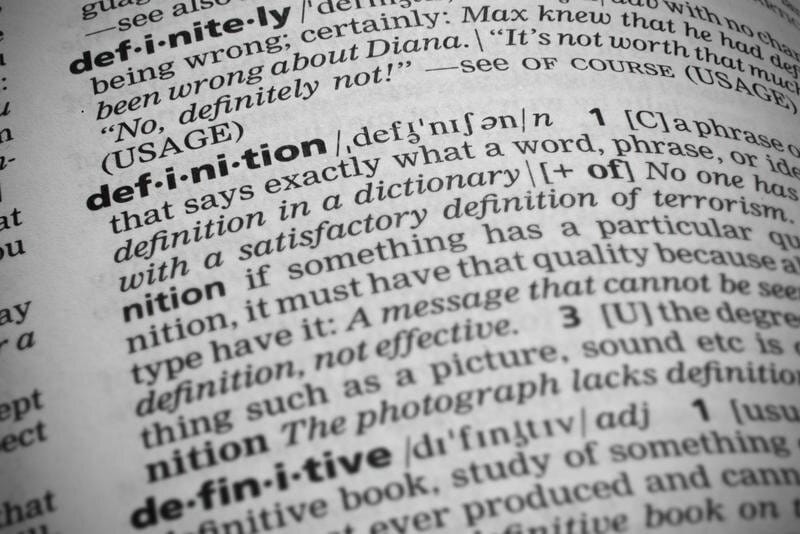


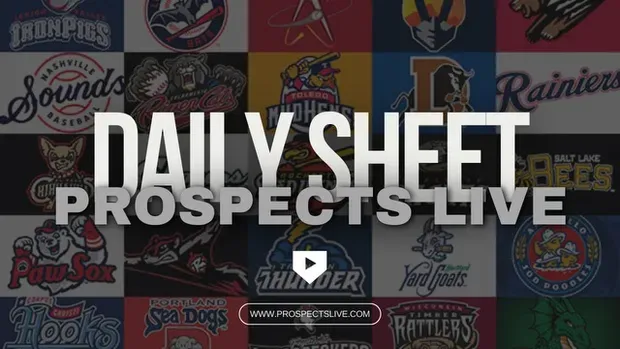
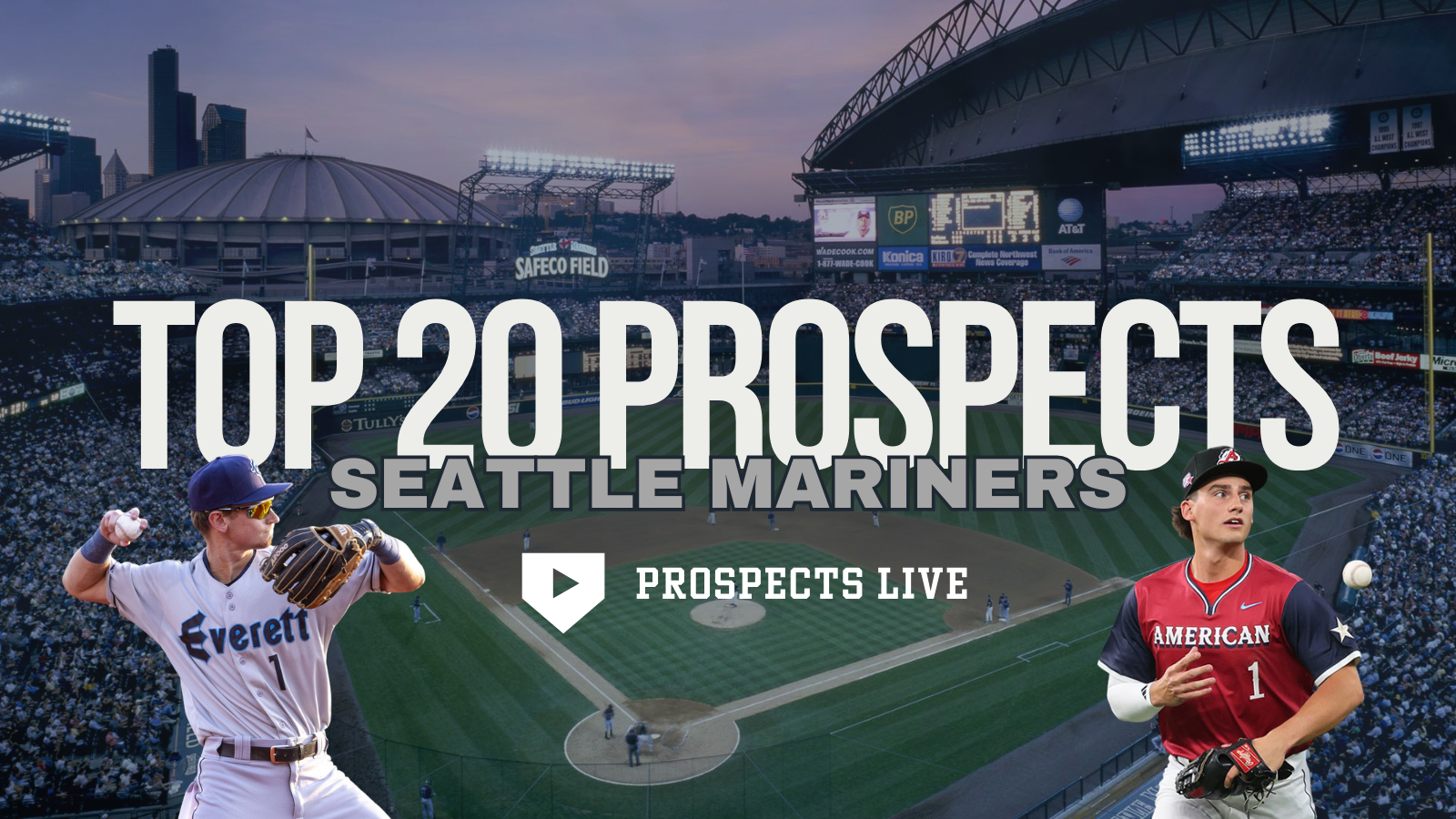


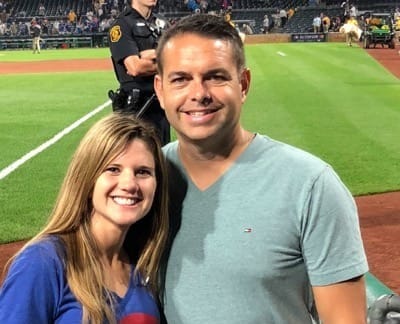
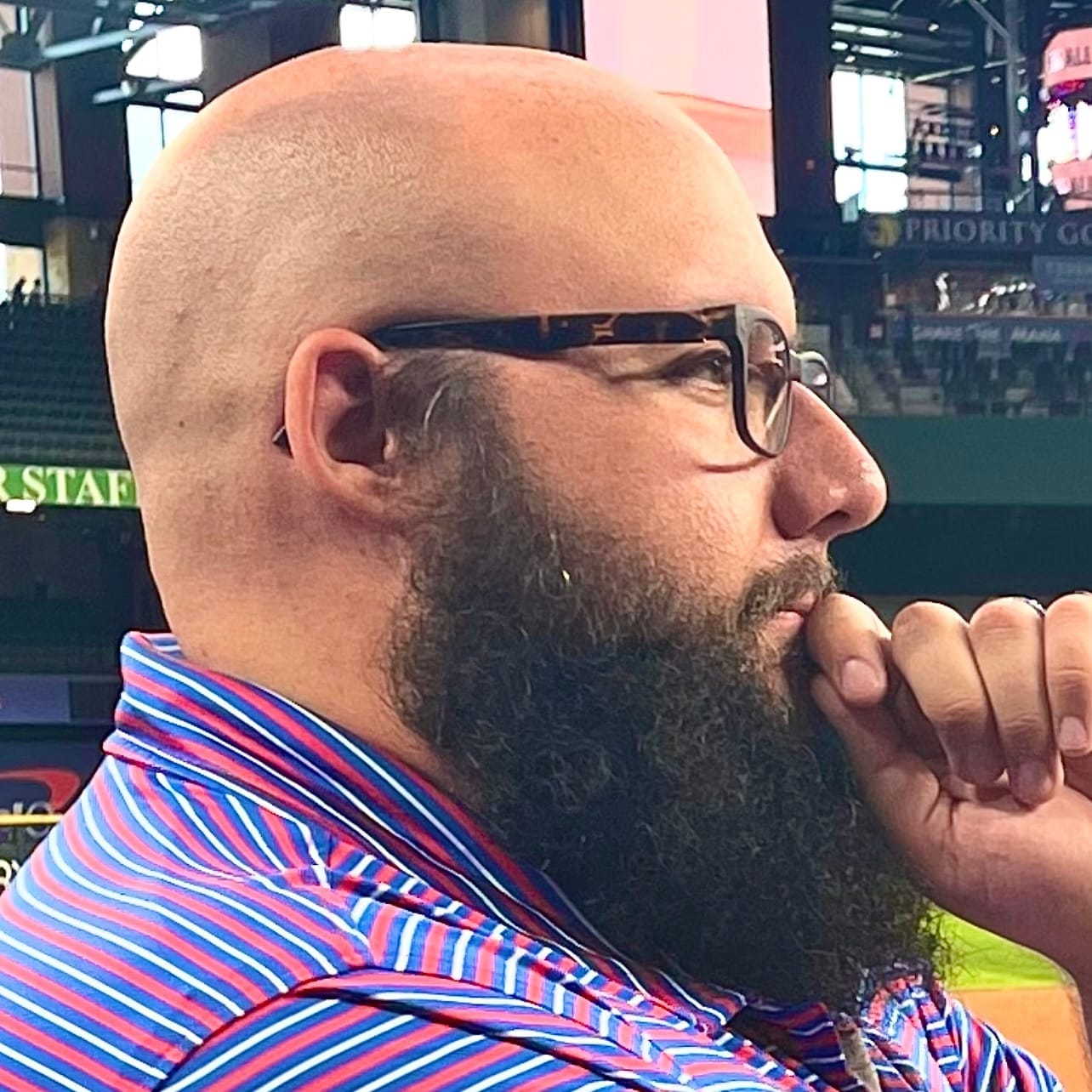








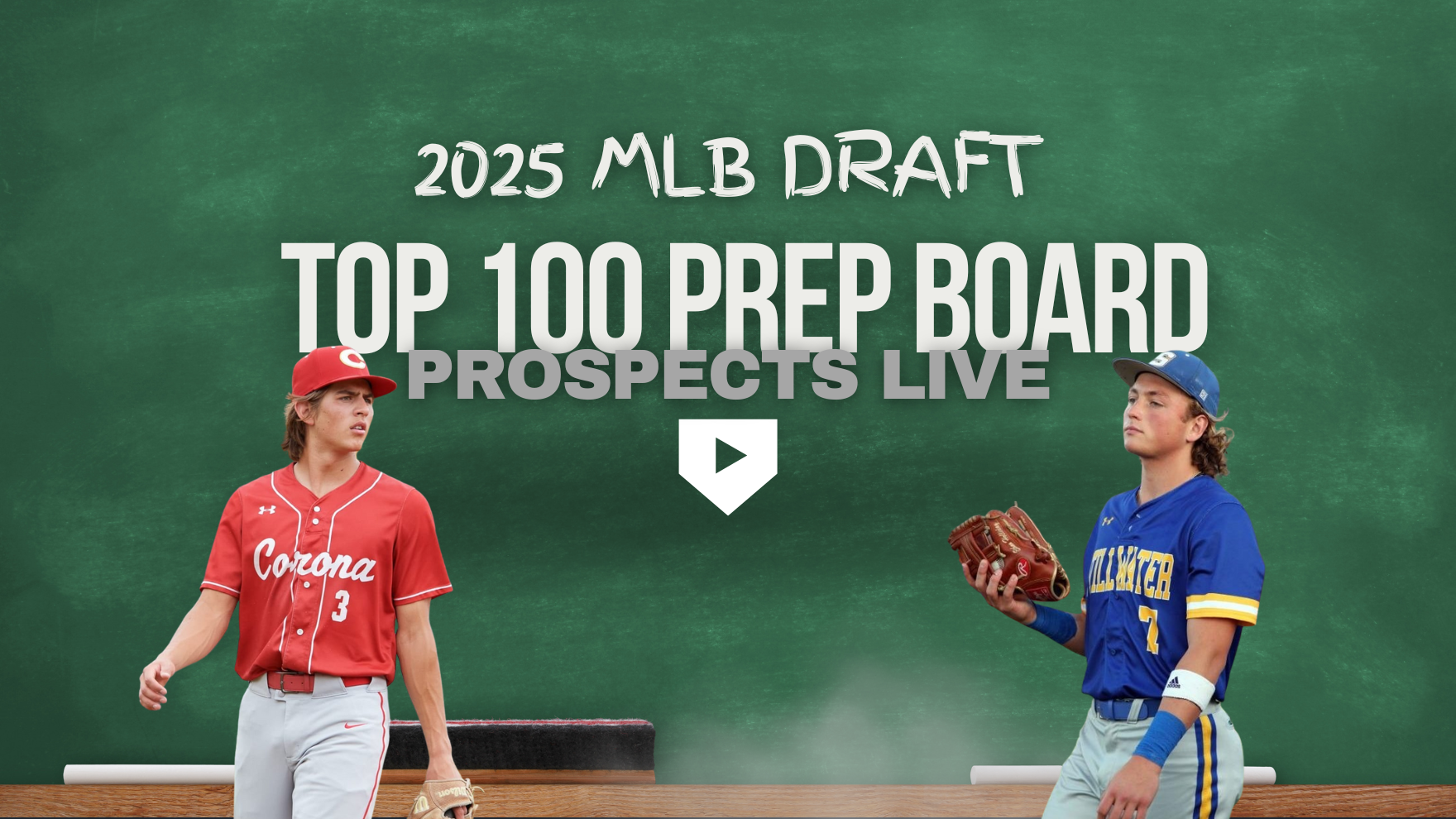


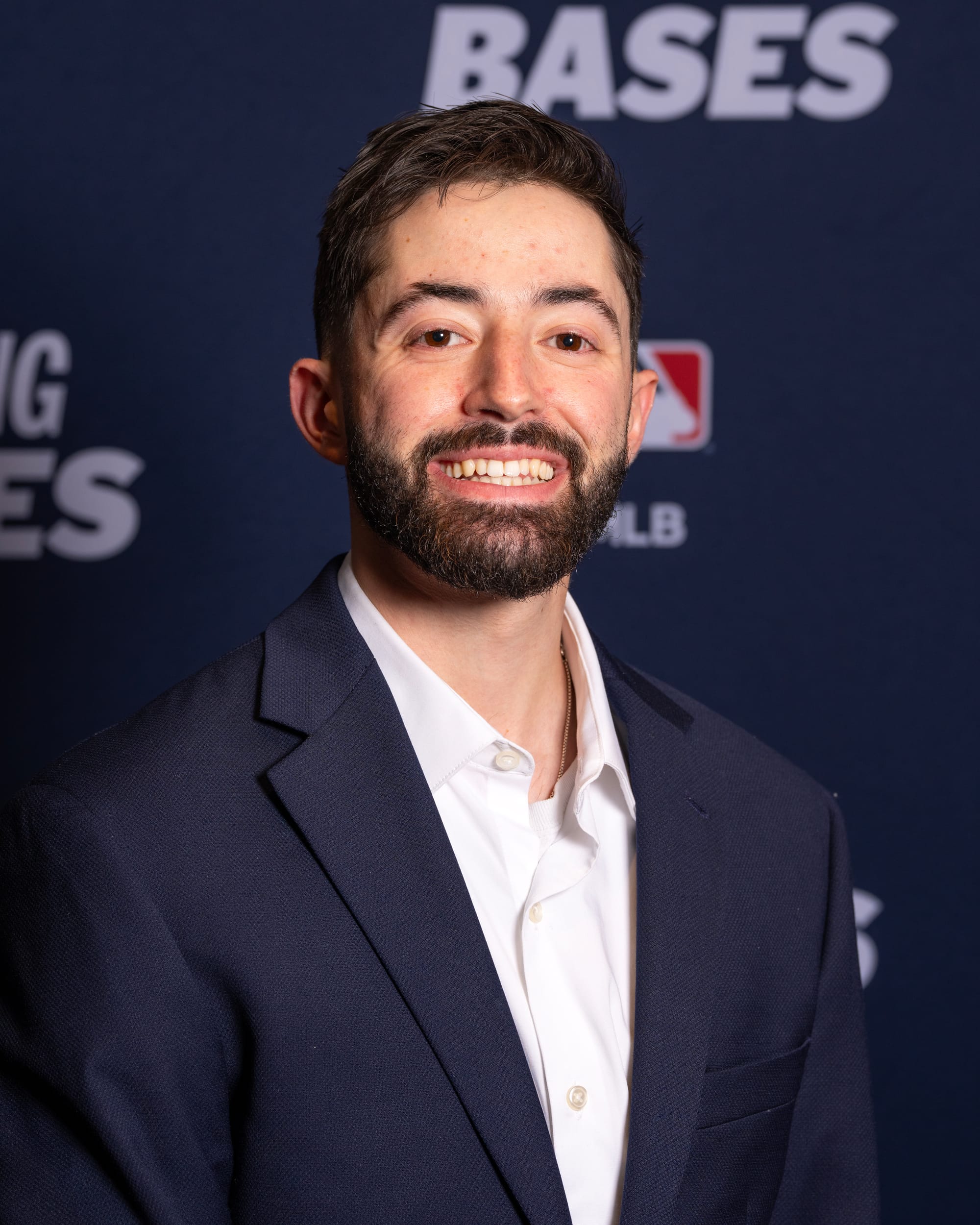

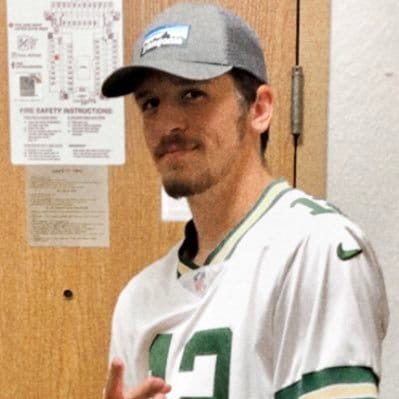


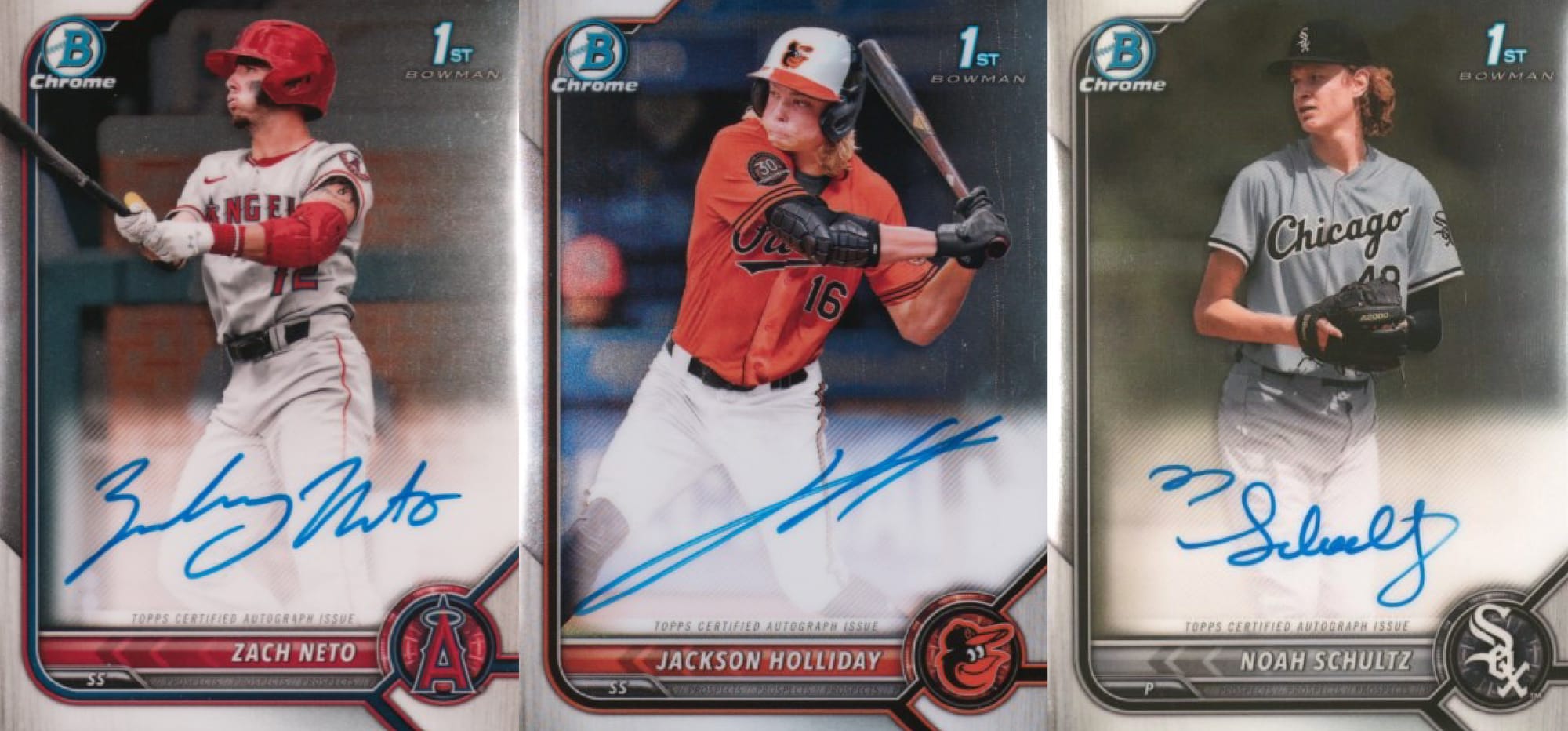

Discussion